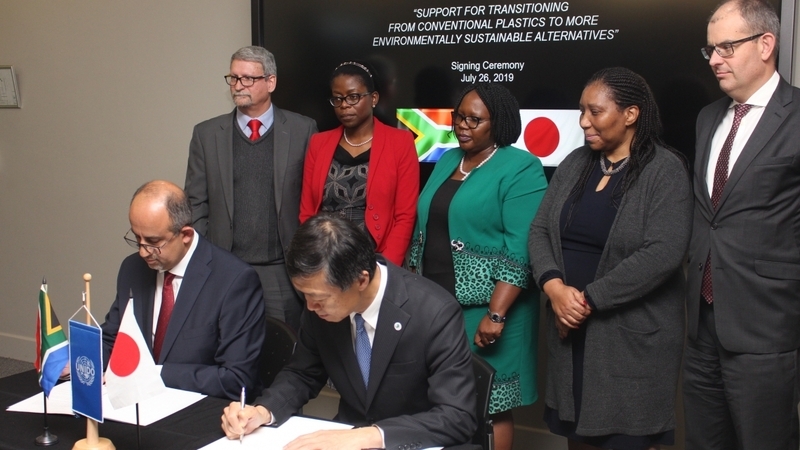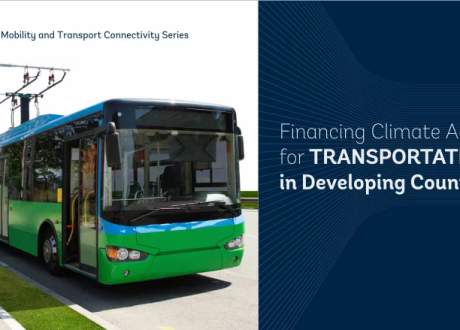
Egypt’s Abouleish among 100 Most Influential Africans 2024 in civil society
Egypt’s Helmy Abouleish, a prominent figure in the field of sustainable agriculture, particularly known for ...

Japan decided to extend $ 1.8 million to support a bioplastics project to be carried out by the United Nations Industrial Development Organization (UNIDO) in South Africa.
The project will support a transition from conventional plastics to sustainable alternatives in South Africa.
There are ongoing efforts to develop a local bioplastic industry in South Africa. The South African Bioplastics Forum was established in 2016 as a result of a joint initiative of the Department of Higher Education, Science and Technology (DHEST), the Council for Scientific and Industrial Research (CSIR) and Plastics SA. The country has large amounts of sugar cane bagasse and other biomass feedstocks suitable for bioplastics; and an emerging bioplastics industry has the potential to create new jobs.
UNIDO will work with the CSIR to develop an action plan to strengthen the capacity of local industry to manufacture alternative materials, and build up capacities for plastic recycling.
Recently, bio-degradable plastics have gained attention as one approach to deal with the scourge of plastic pollution. However, when bringing new materials onto the market, particular attention needs to be paid to ensuring that the overall environmental footprint is not increased and that new types of waste are not created that cannot be recycled and that increase the amount of waste; or hindering efforts to increase circularity.
The project will help to assess all possible scenario and choose appropriate material for South African contexts, and will suggest necessary steps needed to set up an enabling environment.
At the project launch ceremony, Japan’s Ambassador to South Africa, Norio Maruyama, said that the signing ceremony marked the concrete achievement of what was discussed at the G20 in June 2019. He emphasized the importance of the collaboration of South African companies in the project.
Deputy Minister Nomalungelo Gina of the Department of Trade and Industry (the dti) referred to the key objectives of South Africa’s National Development Plan, and said “The dti welcomes the support by the Japanese government and the partnership between UNIDO and the CSIR, since biodegradable plastics are just being introduced locally.”
The CSIR representative, Khungeka Njobe, said, “We look forward to partnering with government and industry in addressing the very important issue of waste plastic.”
Khaled El Mekwad, UNIDO Representative, said, “Such an initiative will be a model of good practice which can be disseminated to other countries in the SADC region. The experience acquired by South Africa could be extended to neighboring countries where the triangular cooperation model with UNIDO and Japan may be replicated and adapted to the local development set-up.”
Trudi Makhaya, Economic Adviser to President Cyril Ramaphosa, welcomed this initiative. She said, “We hope that from this partnership there is agreement that there will be a lot of innovation but also a lot of practical applications of the innovations to new industries and new forms of economic activity that are inclusive, that take communities along, and that ensure that this new economy does not reproduce some of the flaws of the past.”
Egypt’s Helmy Abouleish, a prominent figure in the field of sustainable agriculture, particularly known for ...
A study – by the Potsdam Institute for Climate Impact Research (PIK) – suggests that ...
Investing in resilient transport in low- and middle-income countries (LMICs) requires $417 billion annually between ...


اترك تعليقا